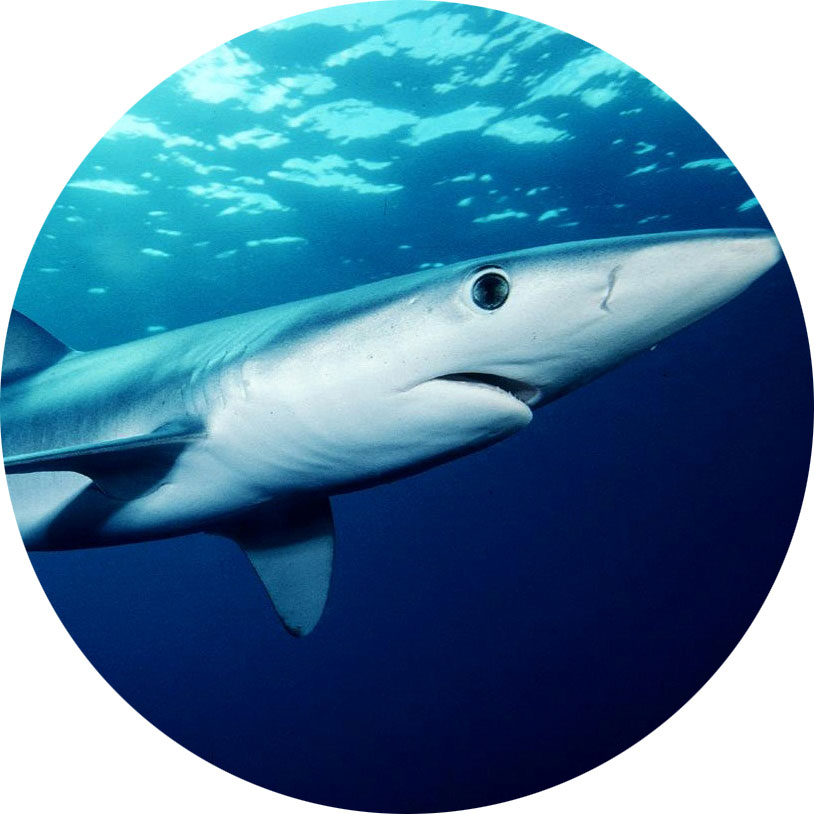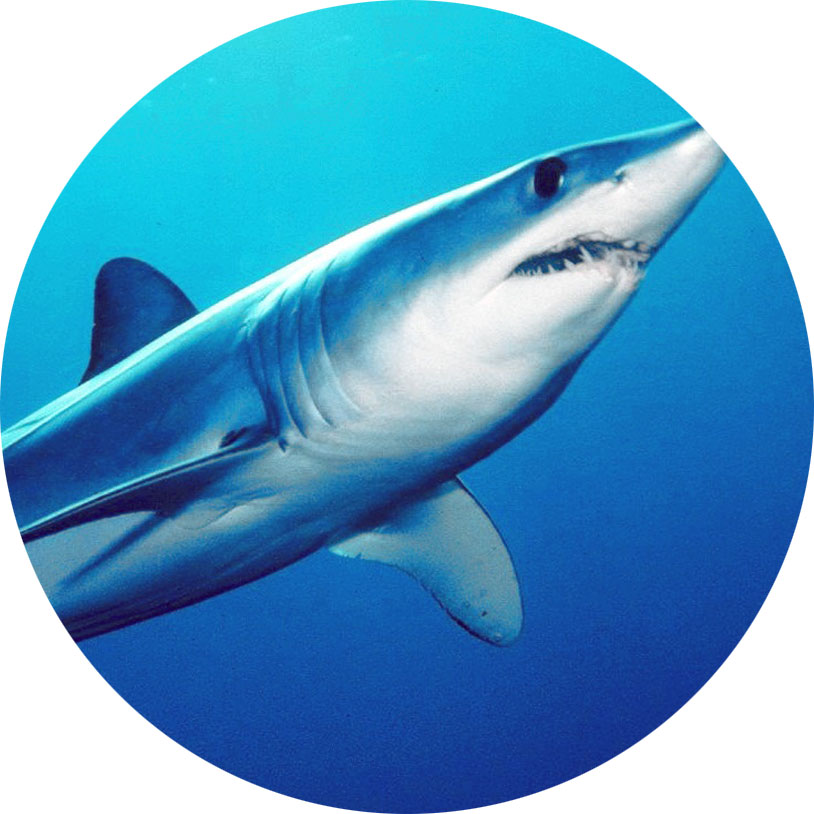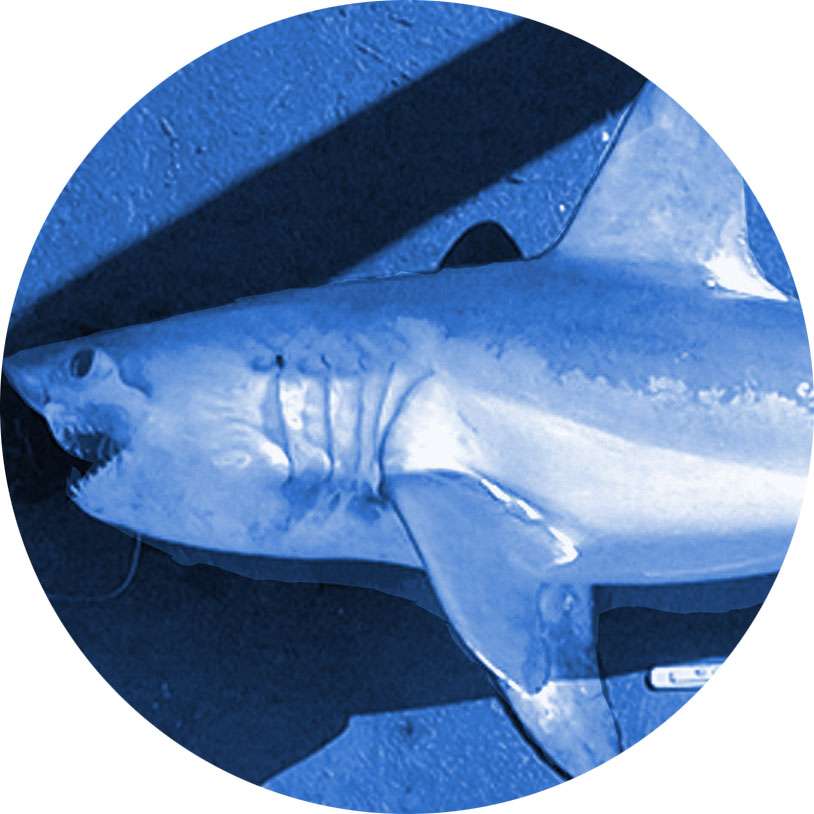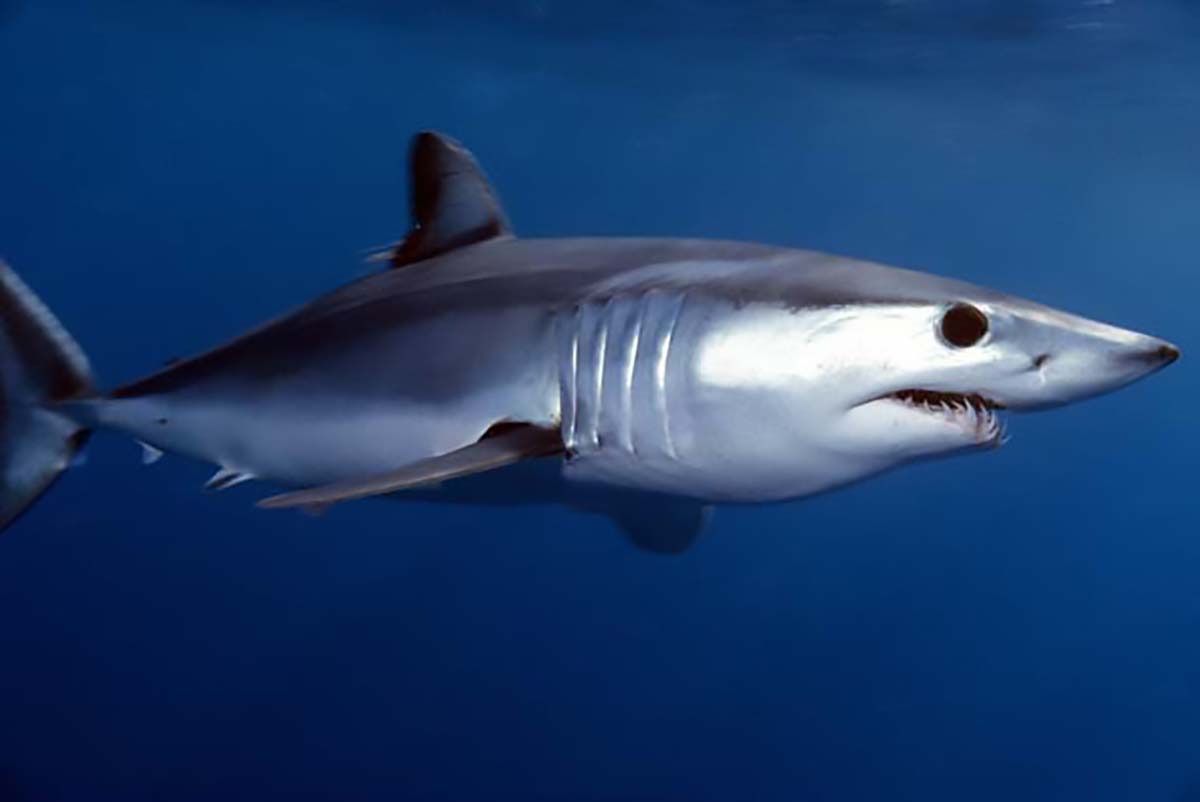With the longest coastline in the world, touching three oceans, it should come as no surprise that Canada is home to many sharks. There are 56 species of sharks, skates and rays (collectively known as elasmobranchs), which frequent the waters of Canada’s coast, and they can be found anywhere from the shifting waters of Bay of Fundy, to the frigid depths of the Arctic Ocean, to the kelp forests of the Pacific. The diversity of these species in Canadian waters is also worth noting; there’s the thorny skate, flat and prickly; the giant, gentle, filter-feeding basking shark; the ancient Greenland shark; the small but mighty spiny dogfish and many others.
While there are so many species that spend time in Canadian waters, there are a few that are especially worthy of attention, due to their biology and how they interact with and are impacted by Canadian fisheries. The four species we currently focus on are the blue shark, the porbeagle shark, the shortfin mako and the Greenland shark.

Blue Sharks
Blue sharks (Prionace glauca), like our spokes-shark Hector, are the most wide-ranging of all shark species and are the most common sharks found in Canadian waters.
learn more

SHORTFIN MAKO Sharks
Shortfin Mako sharks (Isurus oxyrhinchus) are also fairly common in Atlantic Canadian waters. These sharks are speed demons! They are thought to be the fastest species of shark, capable of swimming up to 35 km/h.
learn more

PORBEAGLE Sharks
Porbeagle sharks (Lamna nasus) are a lesser known shark, but unbeknownst to many Canadians, this species actually spends most of its life in Canadian waters and ranges from northern Newfoundland into the Gulf of St. Lawrence. Porbeagles can truly be considered ‘Canada’s shark’.
learn more

GREENLAND Sharks
Greenland sharks (Somniosus microcephalus) were recently discovered to be the longest lived vertebrates on earth. With estimates suggesting that they could live to be 400 years old, these deep-dwelling dinosaurs are mysterious and especially vulnerable.
learn more
photos: jidanchaomian (CC BY-SA 2.0) / Mark Conlin/NMFS / NOAA Okeanos Explorer Program

